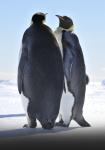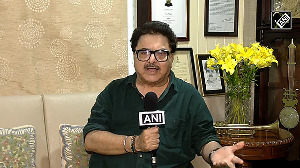An asteroid, the size of a small town, will hurtle past the earth this September.
While not dangerous for now, asteroid Toutatis is incredibly strange. And scientists are quite familiar with it, having bounced radar off the tumbling stone on previous flybys to generate computer renderings of its weird shape and movement.
Toutatis has not been so near since 1353 AD and will not be this close again until 2562 AD, scientists at the US space agency NASA have calculated. No other asteroid so large is known to have come so close in the past.
Toutatis is about 2.9 miles long and 1.5 miles wide (4.6X2.4 kilometres). It looks something like a dumbbell hurtling awkwardly through space. It has a crazy rotation that makes normal days impossible. Scientists cannot explain the shape or spin but they are eager to learn more on September 29 when, during the close pass, even backyard skywatchers will be able to spot the asteroid, says a report in Spacenews.
The orbit of Toutatis is pinned down with better precision than any other large asteroid known to cross the earth's orbit. Toutatis' four-year trek around the sun ranges from just inside the earth's path out to the main asteroid belt between Mars and Jupiter. The asteroid visits us every four years.
This fall, it will zoom by our planet within a million miles, or about four times the distance to the moon. "That is close by cosmic standards for an object that could cause global devastation," says the report.
Toutatis, officially numbered 4179, was discovered by French astronomers in 1989. Researchers cannot predict far enough into the future to rule out Toutatis ever slamming into the earth, so it is listed officially as a Potentially Hazardous Asteroid. NASA says it will not hit for at least the next six centuries.
On September 29, skywatchers can find Toutatis provided they know where to look. Ordinary binoculars should be sufficient if the sky is clear and dark, says Alan Harris of the Space Sciences Institute in Boulder, Coloado.





